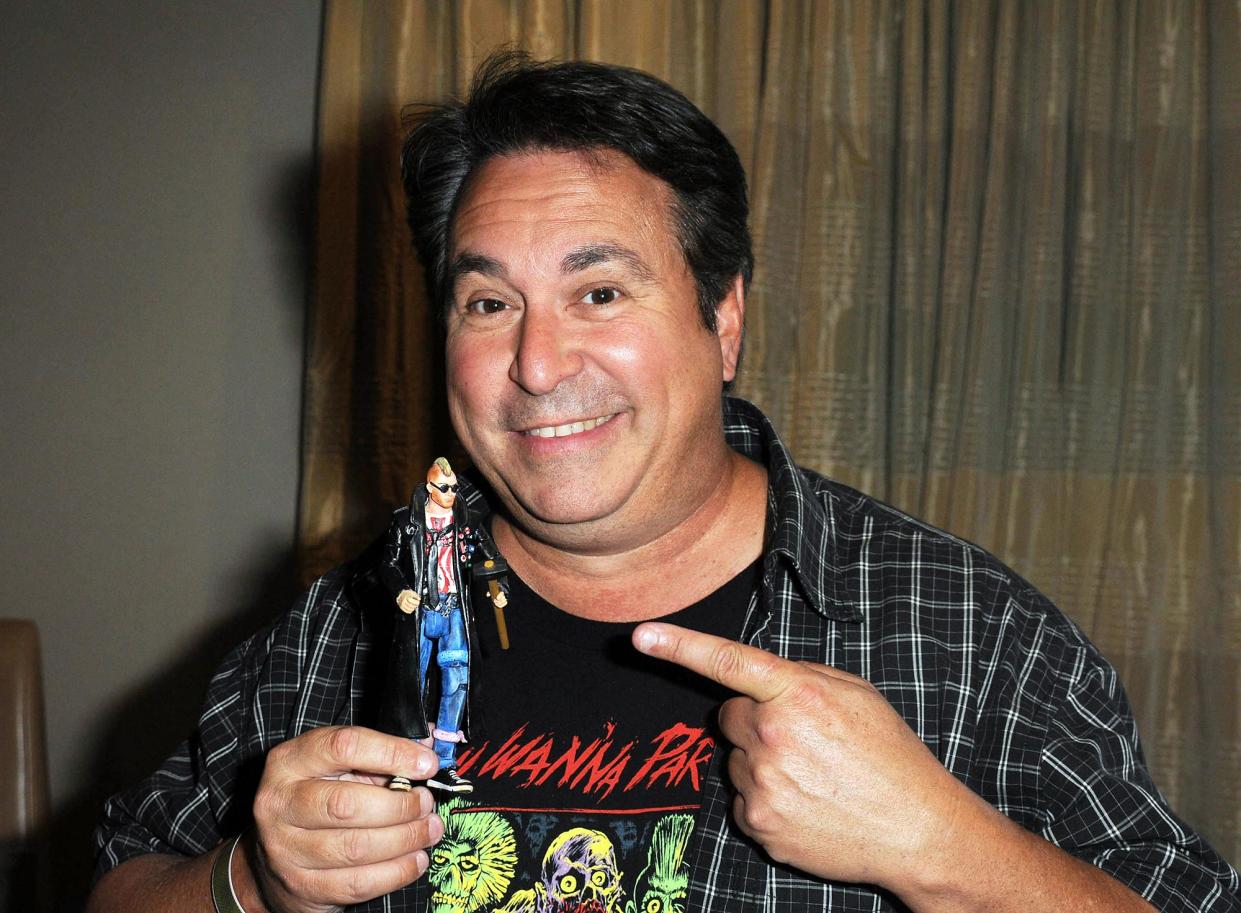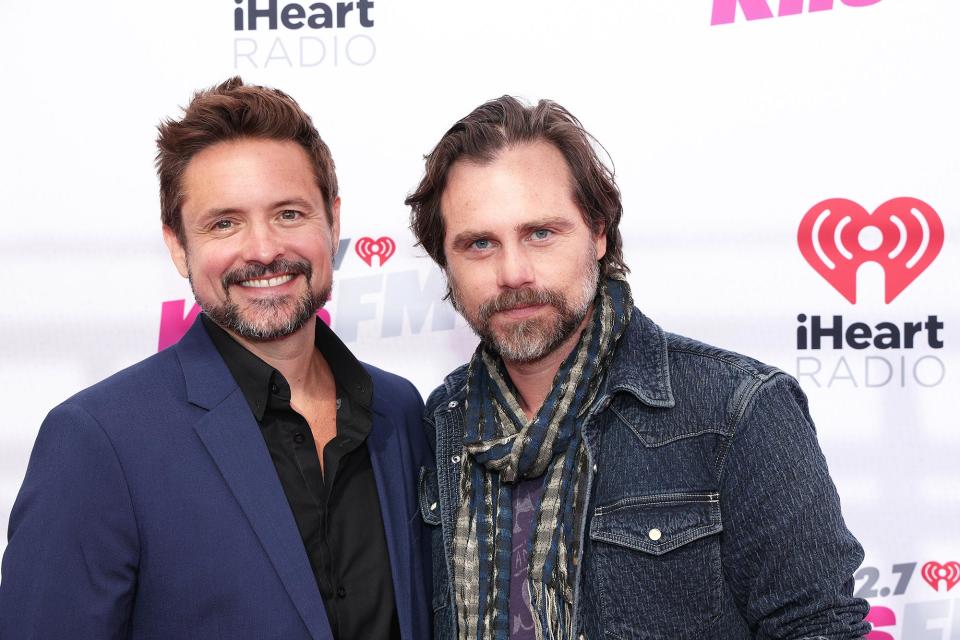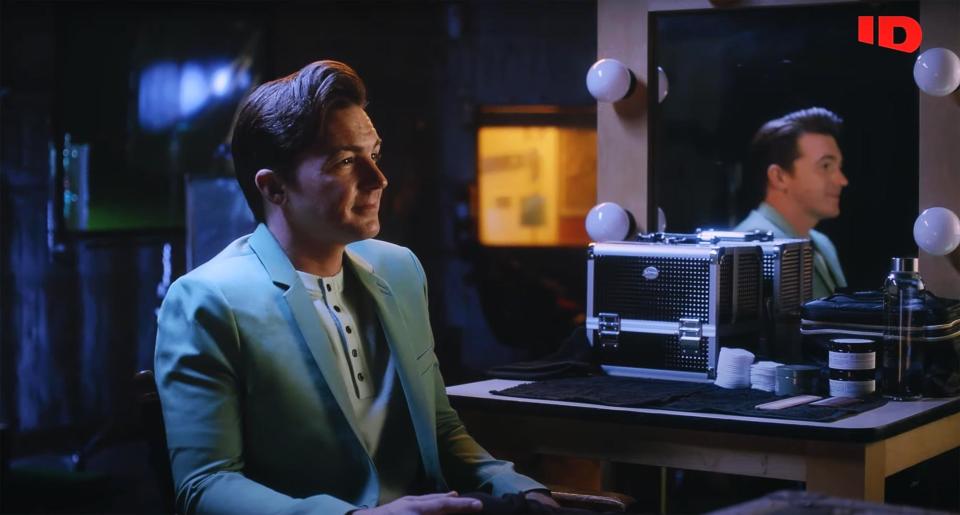‘Quiet on Set’ Directors React to ‘Boy Meets World’ Cast Addressing Their History With Brian Peck

Quiet on Set directors Mary Robertson and Emma Schwartz reacted to Rider Strong and Will Friedle's comments about convicted sexual abuser Brian Peck after they attempted to contact the actors for their docuseries.
"We reached out to everyone who wrote a letter of support [for Brian Peck] that we mentioned in the film — including Will and Rider. We didn't hear back from them," Schwartz exclusively told Us Weekly. "So it was interesting to hear that they put out a podcast after our trailer was announced."
Investigation Discovery released a trailer in February for Quiet on Set: The Dark Side of Kids TV, which centered around discussions of a toxic work environment at Nickelodeon.
In a follow-up clip, the network's former cast and crew discussed how dialogue coach Peck (who has no relation to Nickelodeon star Josh Peck) was arrested in August 2003 after he was accused of sexually abusing a then-unnamed child. Peck, 63, pleaded no contest to performing a lewd act with a victim around 14 or 15 years old and to oral copulation with a child under 16 years old, which resulted in a 16-month prison sentence.
‘Quiet on Set’ Recap: Drake Bell Details Being Sexually Abused by Nickelodeon’s Brian Peck
Quiet on Set subsequently confirmed that Drake Bell was the child star involved in the lawsuit. Before the docuseries aired on ID, Strong, 44, and Friedle, 47, addressed their past friendship with Peck on their "Pod Meets World" podcast.

The duo, who worked with Peck on Boy Meets World, confirmed that they wrote letters of support for Peck and were present at his sentencing. They also clarified that they weren't aware of the charges brought against Peck when they stood by his side. Strong and Friedle have since cut ties with Peck and have not been in touch with him.
"I certainly learned a lot about what they had gone through, how they had seen Brian," Schwartz noted to Us. "It was interesting to see that they were using some of the same language that Drake would use to describe him. Will had also been in the courtroom and he used some of the very same language to describe how many people were there [as Drake did]."
Robertson, meanwhile, said they still had "a lot of questions" about the letters of support. (James Marsden, Taran Killam, Alan Thicke and Ron Melendez were some of the stars to contribute the 41 letters of support, which Peck provided to the judge. The docuseries noted that it remains unclear how much the people knew about the charges against Peck at the time.)
"Those questions are outstanding," Robertson shared. "I think one wonders about the conditions under which they were written, if any pressure was exerted, who asked whom to write which letters and what rationale was offered. So we hope that we learn more in the coming weeks and months."
James Marsden and Others Wrote Letters of Support for Brian Peck in Drake Bell Sexual Abuse Case
While speaking to Us, Schwartz broke down the process of unsealing the documents.
“We began hearing from people who had been at Nickelodeon around this time that they had been asked to write letters of support. I had been a court reporter so I knew in general that letters of support are supposed to be public documents,” Schwartz explained. “But when we went to the court, they were not public. So we spoke with our lawyers and we said, ‘What can we do?’ And they said, ‘Well, you can petition the court to unseal them.’”
She continued: “That's in fact what we did. And the court agreed to release those letters. We didn't know what we would find. We didn't know who would be in there. And that's what you see in the documentary.”
Robertson weighed in on whether they were concerned about the public response from people who wrote the letters, concluding, “The letters have been entered into the public record, they're available.”
Schwartz also discussed a moment from the docuseries when Bell, 37, recalled seeing Peck's packed side of the room during sentencing.
"He didn't expect there to be all these people there. That was a moment that I think was very re-traumatizing for him in understanding that not everyone was on his side," she told Us. "I think that's something that really sticks with you."
Bell opened up about the emotional day during the fourth episode of the docuseries.
"On the day of sentencing for Brian, I get to the courthouse and it was the most unbelievable thing you have ever seen," Bell explained to the cameras. "His entire side of the courtroom was full. There were definitely some recognizable faces on that side of the room and my side was me, my mom and my brother."
The actor recalled addressing his statement to everyone in the room, adding, "I looked at all of them and I just said, 'How dare you. You will forever have the memory of sitting in this courtroom and defending this person. And I will forever have the memory of the person you are defending violating me and doing unspeakable acts and crimes. And that is what I will remember.'"

Several celebrities have since retracted their statements of support for Peck. According to Schwartz and Robertson, it took a lot of work to compile the information that shaped the docuseries into a project that offered a voice to those previously silenced.
"You've probably seen this with other stories and other projects. There becomes a moment where it's like a tipping point and people who have been afraid to talk — who have been too young to talk — are finally sort of in a place where they feel safer to have conversations and to speak," Schwartz noted to Us. "We put together a very large spreadsheet with hundreds of names reaching out to people who are on the crew, people who were on camera, people who were just in the industry at large and trying to understand what their experiences had been like. The more we talked to people, the more I realized just how many people had been holding so much inside and how those who were willing to step forward had wanted to share their experiences and hopes that some of the darkness that they had lived through that by sharing their story other people could learn."
Drake Bell’s Ups and Downs Through the Years
Schwartz said reaching out to Bell in particular took time.
"We got to a point [in our research] where we are pretty confident that the victim in Brian Peck's case was Drake, but it's a really sensitive topic. It's a sensitive question to even ask if a survivor of child sex abuse is open to talking and if even reaching out could be triggering to them," she explained. "So we wrote a letter — a careful letter — and that began an initial conversation. A back and forth that over the course of many months, he finally agreed to sit down for an interview. That's been a long process [for him too] in terms of just coming to terms with wanting to share your story and what that means and healing from the trauma that he was still processing 20 years later."
The directing team made it a priority to center Quiet on Set around those affected.
"One of the guiding philosophies for the project was that we were taking accounts and stories and experiences of people who previously had been sort of pushed into the shadows," Robertson added. "That understanding informed all of the choices that we were making as craftspeople — in addition to as journalists. It meant that when we were picking an interview, we tried to replicate spaces that were off center stage, to the side [or] behind the scenes. We really work to give the floor to those who haven't had it before."
Quiet on Set: The Dark Side of Kids TV airs on ID Sunday, March 17, and Monday, March 18, at 9 p.m. ET.
If you or someone you know has been sexually assaulted, contact the National Sexual Assault Hotline at 1-800-656-HOPE (4673).
